Роберт Бюттнер - Orphan's Destiny
Здесь есть возможность читать онлайн «Роберт Бюттнер - Orphan's Destiny» весь текст электронной книги совершенно бесплатно (целиком полную версию без сокращений). В некоторых случаях можно слушать аудио, скачать через торрент в формате fb2 и присутствует краткое содержание. Жанр: Боевая фантастика, на английском языке. Описание произведения, (предисловие) а так же отзывы посетителей доступны на портале библиотеки ЛибКат.
- Название:Orphan's Destiny
- Автор:
- Жанр:
- Год:неизвестен
- ISBN:нет данных
- Рейтинг книги:3 / 5. Голосов: 1
-
Избранное:Добавить в избранное
- Отзывы:
-
Ваша оценка:
- 60
- 1
- 2
- 3
- 4
- 5
Orphan's Destiny: краткое содержание, описание и аннотация
Предлагаем к чтению аннотацию, описание, краткое содержание или предисловие (зависит от того, что написал сам автор книги «Orphan's Destiny»). Если вы не нашли необходимую информацию о книге — напишите в комментариях, мы постараемся отыскать её.
Orphan's Destiny — читать онлайн бесплатно полную книгу (весь текст) целиком
Ниже представлен текст книги, разбитый по страницам. Система сохранения места последней прочитанной страницы, позволяет с удобством читать онлайн бесплатно книгу «Orphan's Destiny», без необходимости каждый раз заново искать на чём Вы остановились. Поставьте закладку, и сможете в любой момент перейти на страницу, на которой закончили чтение.
Интервал:
Закладка:
“And a little truth-stretching never hurt anybody?”
“Politics are a bitch, Jason. You’ve commanded in combat. How much did you have to stretch to win the war?”
“We won the battle. I’m not sure we won the war.”
“Even Hibble thinks we did. The Slugs have been absent without leave for almost three years.”
“The absence of proof isn’t proof of absence.”
“Jason, your caution is understandable. I’m not asking you to dishonor the truth. I’m asking you to honor the data.” She tapped her finger on the table with each word, hard enough that her martini shimmered. “There. is. no. evidence. that. Slugs. still. exist!”
I stared at her. Accepting the obvious has never been Infantry’s strong suit. There’s a reason the Army mascot is a mule.
Tway grunted. “Okay. Assume, against all rational thought, that you’re right. We’re maintaining necessary defense assets.”
“What does that mean? Tell me in terms somebody from outside the Beltway can understand.”
“I’m doing better than telling you. I’m showing you. That’s why we’re going to Canaveral. I owe you that.”
She drained her glass, set it on the table, and stared into it, like she could find something in its emptiness. Tway could be two people in one body. Hard as flint one minute, then sentiment fought its way to the surface.
A silent hour later we landed at Canaveral. A limo hauled us from the plane to the headquarters building, past gantries set with Interceptors, noses to the clouds. Tway pointed. “Space Force remains generously funded. We’ve built a new generation of Interceptors. And they’re on alert twenty-four/seven.”
The Interceptors weren’t the ancient, airplane-on-fuel-tank space shuttles from the days of the Slug Blitz. These were big, single-stage UN-taupe wedges. Venture Stars.
Tway said, “We’ve got four times as many Interceptors operational as we had of the old, space shuttle — based crates at the height of the Blitz. These are faster, more maneuverable, better armed, and better coordinated. It’s an impenetrable defense.”
I sighed. “So was the Maginot Line. The Germans bypassed it twice. Impenetrable. Says who?”
“Says COIC. Commanding Officer, Interceptor Command. He’s retiring. We’re sitting in on his replacement’s briefing.”
The limo dropped us outside headquarters and Tway led me through security.
The Ops room stretched around us in a semicircle, ballroom-sized and ranked with data displays that were state-of-the-art holotanks. I stopped counting personnel bustling around when the number reached fifty. Space Force had progressed. During the Blitz, they had dusted off cathode-ray-tube boxes and flatscreens.
The COIC sat in a swivel chair on a podium in the semicircle’s center. He was a gray-headed Air Force major general.
The gray-hair’s replacement stood alongside him. Brace. I groaned to myself.
“Welcome to United Nations Space Force Base Canaveral. Canaveral is the consolidated Space Defense and Research and Development Facility of UNSF.” The COIC grinned at Tway, me, and Brace. Brace and I grinned at no one, least of all each other.
Tway turned to me. “Counting civilian contractors plus military personnel contributed from forty member nations, that’s eighty thousand solid jobs. Always work in facts like that.”
With Projectile strikes on Miami and Tampa, Florida was one of the hardest-hit states. No wonder it was getting military-spending dollars.
We three clattered after the outgoing COIC, up catwalk stairs, outside onto the building roof. Salt breeze off the Atlantic chilled us and the general raised his voice to be heard. He swung his arm at an arc of four dozen gantries, half with V-Stars poised, half empty. “At any time, twenty-four V-Stars are on-station in orbit. We can put up another squadron within hours. We’ve completed a runway long enough to recover the newer V-Stars. Lop Nor will finish theirs next year. Scramjets also operate from the Long Strip. They don’t need it, but every pilot likes extra space.”
Brace asked, “You launch from Earth every time?”
I whistled. “That must cost The Brick!”
Tway and the COIC looked at me and frowned, for no apparent reason.
COIC paused, then continued. “That’s why we’re minimizing recovery-runway spending.” He turned and pointed to other, more distant gantries. “That’s the heavy-lift complex. Space Base One will be launched to orbit from there, in sections. Interceptors should be operating from permanent orbit within a year. Not V-Stars but true space-capable fighters. The V-Star’s a sound ship, but she’s a design that was discarded four decades ago. We’re also putting up an unmanned tracker and hunter-killer satellite umbrella, too. Those launch out of Vandenberg.”
It sounded impressive. And expensive. And a hell of a responsible job for Brace. Me, my responsibility was to not spill jelly on my uniform.
I turned to Tway, as the Atlantic breeze snapped at her coat, and said, “Why do you need me to shill for this?”
She ran a hand through her hair. “Expenditures for this project would fund a couple of brand-new cities, domestically. So half of the country thinks it’s a defense pork barrel.”
“Is it?”
Tway looked away and continued. “And the jobs and factories and this base are in the U.S. The rest of the world thinks this project is just America rebuilding itself with the rest of the world’s money, while the rest of the world starves.”
“Is that true?”
Tway crossed her arms.
Brace asked the outgoing COIC, “Research and Development’s based here, too?”
COIC nodded. “Conventional and PTR.”
PTR was Pseudocephalopod Technology Recovery. I asked the old general, “What about PCBR?” That was Howard’s baby, Pseudocephalopod Cryptozoology and Behavioral Research.
COIC wrinkled his nose and pointed at a small building that seemed set apart, out on the horizon. “The Spook House is over there.”
I smiled. The military recognized that Howard Hibble’s intuitive genius was critical to its success. I always believed that if we dissected Howard’s brain, we’d find the definitive history of the galaxy already written in there somewhere. The military also recognized that professorial Howard’s wrinkled uniforms and freak-show sidekicks — yours truly excluded — didn’t fit its paradigm.
So Howard and his merry band of loons functioned in a parallel military universe. The generals and politicians set him off to the side, disconnected his leash, and let him run. Then they allowed themselves to be pleasantly surprised at the bones he brought back.
The Department of Defense had finally set, in isolated bricks and mortar, the unspoken organizational chart that Howard barely fit into.
Tway spent the rest of the afternoon with Brace, presumably educating him on the fine points of media relations.
I hitched a ride to the Spook House. The building was two stories tall and brand-new. Hacking up green worms was Howard’s idea of an all-day frolic, so I expected to find him there. I didn’t expect to find Munchkin and Jude.
SIXTEEN
HOWARD HAD TOURED ME THROUGH LABS, collection rooms where catalogued Projectile fragments were stored, and data-processing facilities. I didn’t expect our last stop to be a playroom. The place was classroom-size, the walls painted with pandas and smiling purple lizards. In the room’s center, Jude caught bean bags, chucked underhand by a lab-coated woman in a clown wig, which was actually her hair, while a lab-coated guy who wore a separate goatee on each cheek holo-cammed each toss.
Munchkin sat in a room corner in civvies, arms crossed.
I tiptoed alongside her. “Home movies?”
Читать дальшеИнтервал:
Закладка:
Похожие книги на «Orphan's Destiny»
Представляем Вашему вниманию похожие книги на «Orphan's Destiny» списком для выбора. Мы отобрали схожую по названию и смыслу литературу в надежде предоставить читателям больше вариантов отыскать новые, интересные, ещё непрочитанные произведения.
Обсуждение, отзывы о книге «Orphan's Destiny» и просто собственные мнения читателей. Оставьте ваши комментарии, напишите, что Вы думаете о произведении, его смысле или главных героях. Укажите что конкретно понравилось, а что нет, и почему Вы так считаете.

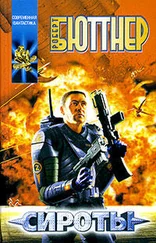

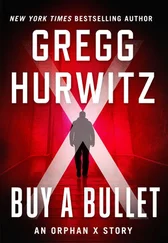
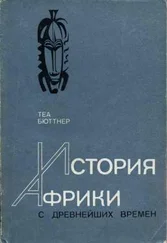
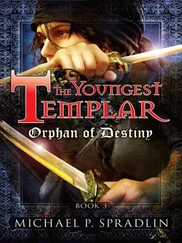
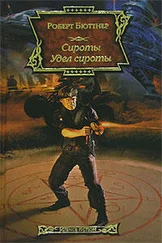
![Дэн Бюттнер - Где живет счастье [Правила жизни самых счастливых людей планеты] [litres]](/books/395574/den-byuttner-gde-zhivet-schaste-pravila-zhizni-samyh-thumb.webp)



